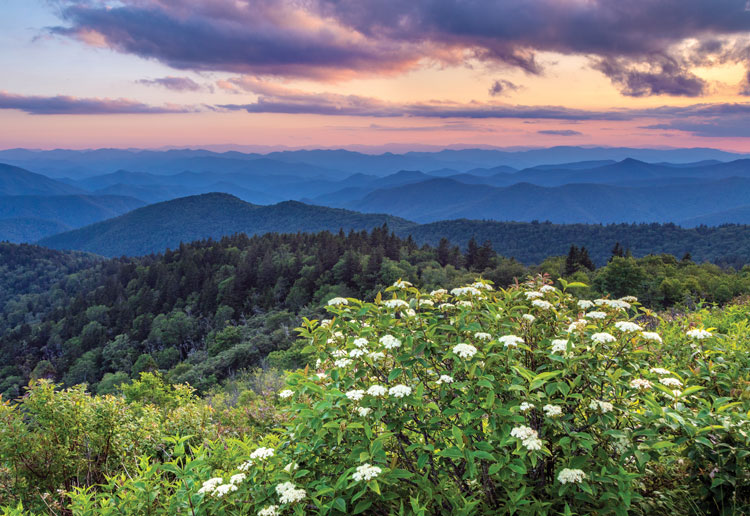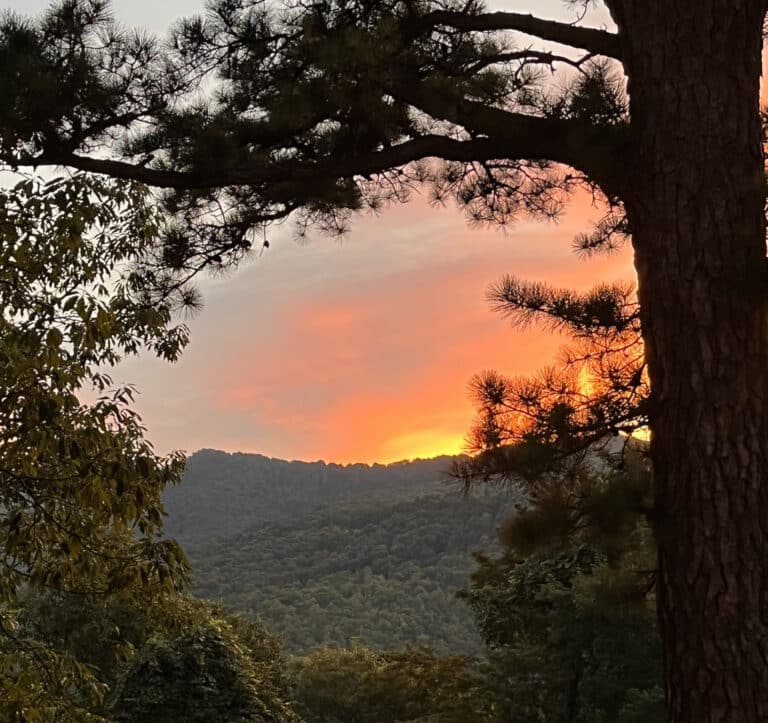North Carolina becomes the first state in the East to create an Office of Outdoor Recreation.

On his first day as the director of North Carolina’s newly created Office of Outdoor Recreation Industry, David Knight got on a plane and flew to Denver. On his second day at the Outdoor Retailer winter trade show, he got a dramatic illustration of just what a big deal his new job was. Bustling with the logo-rich booths of some 1,000 outdoor companies, the show can be as overwhelming as a Las Vegas casino, and Knight pinballed down the halls with 29,000 others between Everest parkas from the North Face to dogs sashaying in Ruffwear, to free grilled cheeses frying at stovemaker Jetboil.
“It just kept going,” laughs Knight, who admitted to getting lost a few times at Outdoor Retailer. Even more impressive than the scale he says, “was the obvious passion on display at every one of these companies—for their products, and for being outside.” Harness all that passion, says Knight, and the outdoor industry can have an outsized political influence—precisely the job Knight was hired to perform.
“David knows government really well, and that’s the sort of champion we need.”
In January 2018, North Carolina governor Roy Cooper appointed Knight as the first state-level director of outdoor recreation east of the Rockies, joining eleven other states like Colorado, Utah, and Washington with similar outdoor czar positions. The posts all seek to prioritize activities like skiing, cycling, hunting, and the jobs that attend them, within their states. They are also an acknowledgment of the growing heft of outdoor recreation. According to a 2017 Outdoor Industry Association report, the outdoor industry contributes $887 billion to the economy, and supports 7.6 million jobs, larger than the auto manufacturing industry or pharmaceuticals. The same report pegs North Carolina’s outdoor industry at $28 billion in annual consumer spending, and 260,000 jobs. The big question is, now that the outdoor industry has a rightful seat at the government table alongside industries like mining or agriculture, can it go toe to toe with them to protect its playgrounds?
In North Carolina, if anyone can make that happen, it is David Knight. The lifelong Tar Heel has made a career in protecting clean water, air, and open space at both the Nature Conservancy, where he was director of government relations for North Carolina, and in state government, where he was the assistant secretary for Natural Resources at the North Carolina Division of Environmental Quality from 2009-13.
“David knows government really well, and that’s the sort of champion we need,” says Noah Wilson, program director of the Outdoor Gear Builders of Western North Carolina. “To help us grow our influence we need someone who can connect the outdoor industry to funding, as well as to power.”
That intersectional capability can help improve recreation in the state when it comes to sprawling complex projects like getting right-of-way and funding for bike paths, or water trails. Or to help promote recreation in places that aren’t as well known as say, Asheville, or the Outer Banks. Just knowing who to talk to in government can save a lot of time and effort. Knight’s office is in the same division, for example, as the state’s tourism office. One unexpected intersection, says Wilson, is enlisting the state’s transportation department to leave old landings in place when bridges are rebuilt as access points for boaters. “Instead of demolishing them, they just leave them,” says Wilson. “That’s an easy, no-cost win for recreation, but only if you have someone who can easily make those connections.”
Knight has spent his first year figuring out such opportunities, starting with a state-wide listening tour. In 13 separate meetings, he met with 40 to 50 local leaders, asking them what his office can do to help foster the economic opportunities of outdoor recreation in their towns and counties. ‘That’s 500 people who are now starting to recognize the value of outdoor recreation in their communities,” says Knight. That value can be from tourism, or to help attract affluent professionals who want to live in North Carolina for its outdoorsy way of life. Vermont, he notes, just offered $10,000 in cash to any freelancer who moved to Vermont, counting on their increased spending and taxes as an economic driver.
Demonstrating the economic value of outdoor recreation is precisely the way that the industry can start to influence public policy that protects the quality of wildlands, says Tom Dempsey, CEO of trailer manufacturer Sylvan Sport, based in Brevard, and the chair of Knight’s 30-person advisory council. People protect what they love; governments protect what makes money. “If we demonstrate that conserving open space is vital for the economy, then it will be done,” says Dempsey.
Such an approach has benefits beyond just a healthier ecosystem and a happier, more physically active society, however, says Wilson. It helps heal our democracy. “To say we are in a politically divided time is an understatement, but I’ve found the one thing that everyone can agree on is that commerce is good. If the business of outdoor recreation is the one place that everyone across the spectrum can get behind, then let’s start there.”








